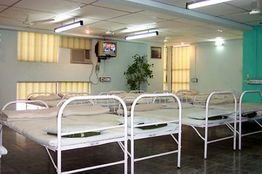
Bayer HealthCare's GIDEON (Global Investigation of therapeutic Decisions in hepatocellular carcinoma and of its treatment with sorafenib) study progressed with positive data in phase III Trial
Singapore: GIDEON (Global Investigation of therapeutic Decisions in hepatocellular carcinoma and of its treatment with sorafenib) study by Bayer HealthCare, a global assessment of patients with hepatocellular carcinoma (HCC) who were treated with Nexavar (sorafenib) tablets, has progressed with positive data in phase III Trial.
The study of more than 3,000 patients from five continents, including half from Asia Pacific, China and Japan, evaluated Nexavar's safety and efficacy in real-world clinical practice in patients with inoperable HCC.
The decision to treat these patients with Nexavar was made under real-world, medical practice conditions. Measurement parameters in the study included the safety and efficacy of Nexavar, patient characteristics, treatment for HCC and physicians' specialty/practice patterns. The study was conducted at 378 sites in 39 countries worldwide including Singapore, China, Japan, Hong Kong, India, Indonesia, Korea, Malaysia, Pakistan, Philippines, Thailand and Vietnam.
The findings from the GIDEON study will be very useful to clinicians by providing a clear picture of Nexavar's use in real-world clinical practice" explained Professor Masatoshi Kudo, Department of Gastroenterology and Hepatology, Kinki University School of Medicine in Osaka, Japan. "We now have a large, global database of information to help us better manage the safety and tolerability of Nexavar particularly in Asian patients with liver cancer who may benefit from this treatment."
Singapore GIDEON experience principal investigator of the GIDEON trial in Singapore Dr Hsieh Wen-Son, consultant medical oncologist with Singapore Oncology Consultants at the Mount Elizabeth Medical Center and Mt Alvernia Hospital, shared, "Nexavar has been the standard of care in advanced HCC and the only treatment to show a positive survival benefit in patients with unresectable HCC. With GIDEON, we now have access to new safety and efficacy information to better manage advanced patient care in HCC."
Dr Hsieh added, "The patients on the GIDEON trial were monitored at each follow-up visit to ensure that they respond well to therapy and were able to spend as much time as they can with their loved ones. With high mortality rates and less than a 10 percent five-year survival rate of liver cancer patients with inoperable tumoursi, time is of the essence when it comes to diagnosis and treatment."
Child-Pugh (CP) is a score that determines the severity of liver failure, in which CP-A is considered less severe than CP-B. The safety profile of sorafenib in unresectable HCC patients appears consistent, irrespective of liver function, and AEs observed across Child- Pugh subgroups were in keeping with the known AE profile of sorafenib. The GIDEON study also revealed that Child-Pugh status is a strong prognostic factor for overall survival in HCC patients.




